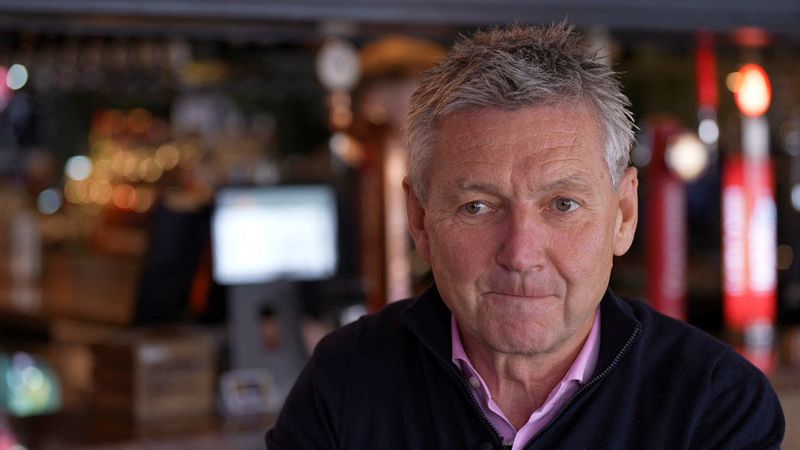
By William Schomberg
BROADSTAIRS, England (Reuters) – Pub owner Philip Thorley sees only one direction for his prices once a tax hike for British employers kicks in next week: up. That may be bad news for the Bank of England, which plans to lower interest rates to help the sluggish economy.
Thorley, who owns 18 hospitality sites around the seaside town of Broadstairs, said he could not absorb all the extra cost, which follows a painful run of inflation in recent years.
“We feel as though we’ve been fighting Mike Tyson with one hand tied behind our back,” Thorley said as drinkers in his Cramptons sports bar watched cycling and cricket on screens.
“We’re not a sponge. At some point we’ve got to look at it and say enough’s enough.”
Many business owners are bracing for the 25 billion-pound ($33 billion) hike in employers’ social security contributions – announced in October by finance minister Rachel Reeves and which comes into force on Sunday.
Reeves has described her first budget, which included the biggest package of tax increases in three decades, as a “once-in-a-generation” change to invest in public services and modernising the economy.
On Wednesday, she told lawmakers that there were costs to her tax changes but being irresponsible with the public finances would be worse.
The social security hike will be felt keenly in hospitality, where two-thirds of workers are part-time and have mostly earned too little for employers to pay the contributions.
But from the start of the tax year on April 6 the threshold drops sharply, to 5,000 pounds a year from 9,100 pounds for workers aged over 21. The contributions rate will also rise.
At Cramptons, only four of 30 staff outside the kitchen earn more than the existing threshold. From next week, almost all of them will.
“It is going to be really difficult for us … to swallow this,” said Thorley, who employs about 400 people, many of them young workers. “However, we’re not going to … be making knee-jerk reactions. We’re going to try to be pragmatic about it.”
Thorley recently increased his drinks prices by 5% following an annual price hike by beer suppliers. He expects a similar rise will be needed to cover most of the tax increase.
The British Beer & Pub Association estimates the average price of a pint will go up by 21 pence – taking it above five pounds – due to the tax hike and other changes.
On April 1, Britain’s minimum wage went up by nearly 7%, with bigger increases for younger workers.
Hospitality firms are also facing a cut to COVID-era relief from a commercial property-related tax.
